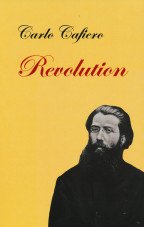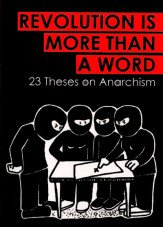English books
Englischsprachige Bücher von AK Press, Crimethinc und anderen...
Autor*innen: Mathew Lawrence; Laurie Laybourn-Langton
Autor*innen: David Correia; Tyler Wall
Prisoners of the American Dream is Mike Davis’s brilliant exegesis of a persistent and major analytical problem for Marxist historians and political economists: Why has the world’s most industrially advanced nation never spawned a mass party of the working class? This series of essays surveys the history of the American bourgeois democratic revolution from its Jacksonian beginnings to the rise of the New Right and the reelection of Ronald Reagan, concluding with some bracing thoughts on the prospects for progressive politics in the United States.
Autor*innen: Mike Davis
Forty years after the defeat of Nazism, and twenty years after the great wave of decolonization, how is it that racism remains a growing phenomenon? What are the special characteristics of contemporary racism? How can it be related to class divisions and to the contradictions of the nation-state? And how far, in turn, does racism today compel us to rethink the relationship between class struggles and nationalism?
Autor*innen: Etienne Balibar; Immanuel Wallerstein
Autor*innen: Adam Greenfield
In this beautifully drawn work of graphic biography, writer and artist Kate Evans has opened up Rosa Luxemburgs subject’s intellectual world to a new audience, grounding Luxemburg’s ideas in the realities of an inspirational and deeply affecting life.
Autor*innen: Kate Evans
Towards the end of the nineteenth century, there appeared in Central Europe a generation of Jewish intellectuals whose work was to transform modern culture. Drawing at once on the traditions of German Romanticism and Jewish messianism, their thought was organized around the cabalistic idea of the “tikkoun”: redemption. Redemption and Utopia uses the concept of “elective affinity” to explain the surprising community of spirit that existed between redemptive messianic religious thought and the wide variety of radical secular utopian beliefs held by this important group of intellectuals. The author outlines the circumstances that produced this unusual combination of religious and non-religious thought and illuminates the common assumptions that united such seemingly disparate figures as Martin Buber, Franz Kafka, Walter Benjamin and Georg Lukács.
Autor*innen: Michael Löwy
Carlo Cafiero (1846 - 1892) is undoubtedly one of the most important figures of the First International both in Italy, his home country, and in general throughout Europe. But this mild-mannered anarchist is all too often remembered only for some of the curious episodes in his life (his participation in the Benevento uprising, his "gift" of La Baronata to Bakunin and anarchist revolutionaries), rather than for his ideas and the enormous influence he had on the early socialist movement in Italy.
Autor*innen: Carlo Cafiero
In short, despite the mentioned upswing, anarchism appears as marginalized as ever when it comes to the grand scale of things. In light of this, it seems as good a time as any to reflect on anarchism’s role in the overall political arena and to examine its strengths and weaknesses.
Jewish radicals manned the barricades on the avenues of Petrograd and the alleys of the Warsaw ghetto; they were in the vanguard of those resisting Franco and the Nazis. They originated in Yiddishland, a vast expanse of Eastern Europe that, before the Holocaust, ran from the Baltic Sea to the western edge of Russia and incorporated hundreds of Jewish communities with a combined population of some 11 million people. Within this territory, revolutionaries arose from the Jewish misery of Eastern and Central Europe; they were raised in the fear of God and taught to respect religious tradition, but were caught up in the great current of revolutionary utopian thinking. Socialists, Communists, Bundists, Zionists, Trotskyists, manual workers and intellectuals, they embodied the multifarious activity and radicalism of a Jewish working class that glimpsed the Messiah in the folds of the red flag.
Autor*innen: Alain Brossat; Sylvia Klingberg
Baltimore. Ferguson. Tottenham. Clichy-sous-Bois. Oakland. Ours has become an “age of riots” as the struggle of people versus state and capital has taken to the streets. Award-winning poet and scholar Joshua Clover offers a new understanding of this present moment and its history. Rioting was the central form of protest in the seventeenth and eighteenth centuries, yet it was supplanted by age of the glorious strike and labour protests of the nineteenth and twentieth centuries. From, from the seventies on, we're seen a return of the strike - now changed along with the coordinates of race and class.
Autor*innen: Joshua Clover
“Life in this society being, at best, an utter bore and no aspect of society being at all relevant to women, there remains to civic-minded, responsible, thrill-seeking females only to overthrow the government, eliminate the money system, institute complete automation and destroy the male sex.” So begins this infamous text by Valerie Solanas
Autor*innen: Valerie Solanas



























